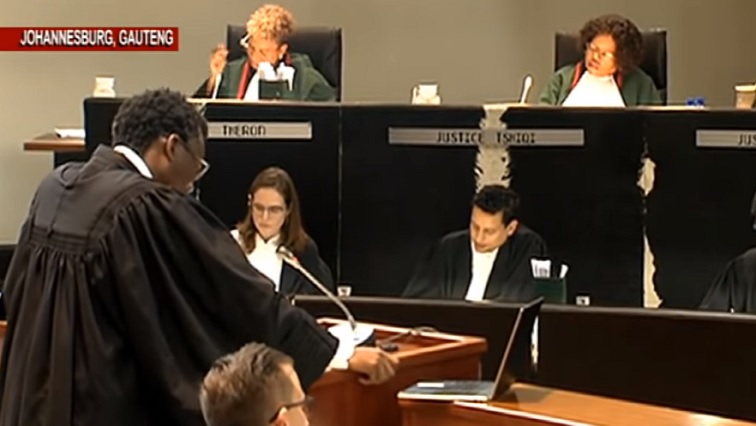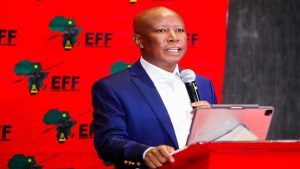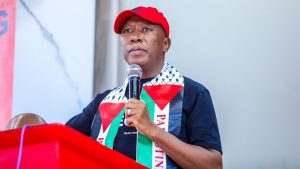The Constitutional Court has reserved judgment in the Economic Freedom Fighters (EFF) leader Julius Malema‘s bid to challenge the constitutionality of the Riotous Assemblies Act in its entirety.
Malema approached the court to have the act, which he is charged under for allegedly inciting violence and unlawful land occupation while addressing his followers in KwaZulu-Natal and Bloemfontein, invalidated.
In 2019, the Gauteng High Court in Pretoria found that only a portion of the act was unconstitutional. The 64-year-old law was drafted by the apartheid regime, in order to limit the number of public protests.
This is the argument Malema relied on for his argument.
“The Riotous Assemblies Act is a law passed in order to enforce apartheid. It would be a sad irony if a law that was passed to enforce apartheid is then retained in the statute book on the rather difficult reasoning that it accidentally happened to be in our statute book,” Malema’s legal representative, Advocate Tembeka Ngcukaitobi argued.
Ngcukaitobi told the court that the act criminalises speech instead of action and therefore violates freedom of expression.
“There’s not even a distinction about the type of offences that can be incited and that is why the State is able to use murder and then occupation in the same sentence as if killing someone and occupying the land is the same thing. One of the things that the State is capable of doing perhaps legitimately under section 16 is rank what types of offences may be incited in order to draw the proportional link between the incitement and the speech provisions but the problem with the statute is that there is not even such a limitation, so, a person who says in a country that is landless, vacant land must be occupied is a criminal.”
In the video below Advocate Tembeka Ngcukaitobi argues why the Act is not reasonable nor justifiable:
The State’s legal representative Advocate Hilton Epstein argued that, while Malema can exercise his freedom of expression and mobilise people to protest, the rule of law is the cornerstone of land reform.
“Failure by the State to act in an appropriate manner in this circumstance would mean that the landowner and others similarly placed cannot look upon the state and its organs to protect them from invasion of their property that would be a recipe for anarchy. We know of course that the rule of law is the cornerstone of land reform but this constitution does not sanction the arbitrary seizure of land and it’s the duty of the State to ensure that there is a protection of property owners whilst recognising the need the obvious urgent need for land reform.”






